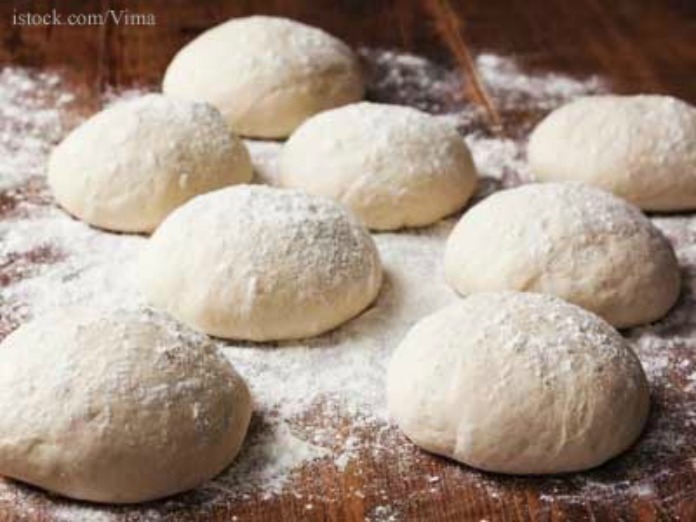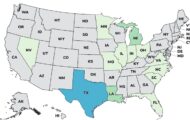It’s National Pizza Week! Have pizzas been linked to any food poisoning outbreaks in the U.S.? The answer is yes.

The ingredients in pizza that could be problematic include flour in the dough, cheeses, produce such as leafy greens, and any type of meat toppings. But since pizzas are usually cooked so thoroughly, how can people get sick? There are three answers to that question: handling the pizzas before they are cooked, cross-contamination, and microwave cooking.
Raw dough is considered a risky food, since flour used to make it has long been associated with E. coli O157:H7 outbreaks, from the Nestle raw cookie dough outbreak in 2009, to the General Mills flour E. coli outbreak in 2016 that sickened 63, to the E. coli O157:H7 outbreak linked to ADM Milling flour last year that sickened 21 people. The 2016 Pizza Ranch E. coli outbreak was linked to dough used by that restaurant chain, and sickened 13 people in the upper Midwest.
Raw flour is an agricultural product and can be contaminated with pathogens just like leafy greens or fresh produce. If pizza dough is not yet baked and someone touches it, doesn’t wash their hands, and eats something else, or if the dough is undercooked, illness is possible. You only have to ingest ten E. coli O157:H7 bacteria to get very sick.
Cross-contamination with uncooked ingredients is another way that contaminated pizza can make someone sick. From the uncooked dough to shredded cheese to leafy greens and meats, pizza can contain ingredients that are susceptible to contamination. From there, the pizza could contaminate work surfaces, cutting boards, utensils, and plates and platters. And if a food that is eaten uncooked also comes into contact with them, illness is possible.
Finally, if pizza is cooked or reheated in a microwave oven, pathogens can survive. Microwave ovens have hot spots and cold spots, which can lead to uneven heating of food. The Farm Rich E. coli O121 outbreak in 2013 that sickened 35 people was linked to microwave-heated snack products, including mini pizza slices, mini quesadillas, and other frozen snack foods. That was one of the largest multistate E. coli outbreaks in 2013. Thirty-five people in 19 states were sickened, with young people most affected; 82% of patients were under the age of 21. Two patients developed hemolytic uremic syndrome (HUS), a type of kidney failure.

You can contact food safety attorney Fred Pritzker for help with any type of food poisoning by calling 1-888-377-8900 or 612-338-0202.
The point here, of course, is to tell consumers to be careful handling any type of food. Any product, food, or ingredient can be contaminated with pathogens, so following safe food handling instructions is critical, as is being aware of the foods that are most likely to be contaminated.
So to protect yourself and your family, wash your hands before and after handling food, rinse fresh produce before you prepare it, be very careful when working with flour or dough, clean thoroughly after using the kitchen, and cook foods thoroughly to safe final internal temperatures. It is illegal to sell any food product that is contaminated with enough pathogens to make someone sick, but unfortunately consumers are the final line of defense against food poisoning.




